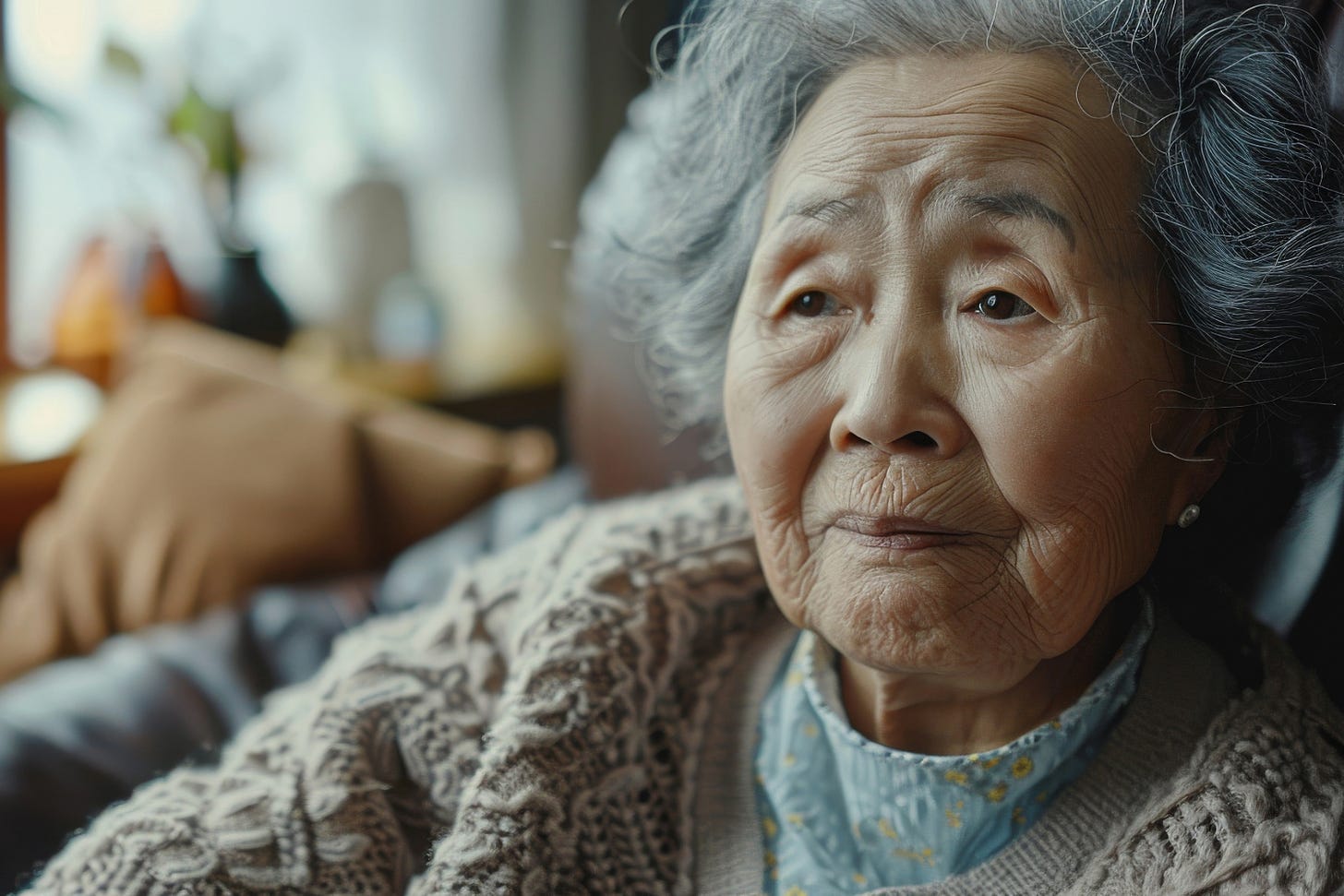A Virtual Companion for the Lonely: Can AI Fill the Void?
Imagine being an older adult, living alone in a quiet house, with the days blending into one another. Family visits are infrequent, friends have passed, and the outside world feels increasingly distant. But what if a conversation partner was always there—someone who remembered your stories, asked about your day, and engaged in meaningful dialogue? This companion isn't human but an AI-powered chatbot designed to alleviate loneliness. As society ages, could AI offer a solution to the growing issue of social isolation among older adults?
The Growing Public Health Crisis of Loneliness
Loneliness has become a significant public health issue, particularly among older adults. According to the National Academies of Sciences (2020), one-third of adults aged 45 and older report feeling lonely, and nearly one-fourth of adults aged 65 and older are socially isolated. Recent studies by De Freitas et al. (2024) suggest that AI-powered companions could provide much-needed emotional support to older adults, reducing loneliness to comparable levels achieved through human interaction. However, while AI offers promising solutions, it also raises essential questions about the essence of human connection and the long-term impacts of relying on digital companionship.
The nature and extent of loneliness among older adults have evolved significantly. Traditionally, extended families and close-knit community networks provided essential social support, helping to prevent feelings of isolation among older adults. However, contemporary shifts in societal structure have altered this dynamic. Urbanization has led to greater geographic mobility, while smaller family sizes and longer life expectancies have left many older adults living alone. In the United States in 2020, approximately 35% of all households included a householder aged 65 or older, translating to around 44.6 million households. Alarmingly, about one-third of these households consisted of just one person, amounting to roughly 14.3 million individuals aged 65 and older living in solitude (Anderson et al., 2024; United States Census Bureau, 2023). This dramatic shift underscores a growing disconnection from traditional support systems.
Health Consequences of Social Isolation
Loneliness deeply affects both the physical and mental health of older adults. Physically, loneliness is linked to a higher risk of heart disease, high blood pressure, and stroke, as well as a weakened immune system and obesity due to unhealthy lifestyle choices. It also contributes to cognitive decline, including an increased risk of dementia. Mentally, loneliness is strongly associated with higher rates of depression, anxiety, and even suicidal thoughts while also increasing the likelihood of developing Alzheimer's disease and other mental health disorders (NIH National Institute on Aging, 2024; Rubin & McCants, 2021).
The impact of loneliness on health is both profound and extensive. Overall, the health impacts of loneliness are so severe that they are comparable to the risks associated with smoking 15 cigarettes daily, affecting premature mortality and increasing the need for hospitalization (Rubin & McCants, 2021). To address these challenges, a range of interventions has been suggested, including community-based programs and technological solutions like AI companions.
Promising Research: How AI Companions Are Reducing Loneliness
Recent research on AI companions has highlighted their potential to alleviate loneliness effectively. In a series of studies, researchers fine-tuned large language models (LLMs) to detect and respond to loneliness in conversations. The results were compelling: AI companions were found to reduce loneliness at levels similar to those experienced when interacting with others, outperforming passive activities like watching videos. For example, one longitudinal study showed that an AI companion consistently reduced loneliness over a week, with users particularly appreciating the feeling of being heard—an essential factor in emotional support (De Freitas et al., 2024).
Moreover, the studies revealed that users often underestimated how AI companions could improve their sense of connectedness (De Freitas et al., 2024). This finding is important because it indicates that AI companions might offer more significant benefits than initially perceived. Therefore, they could be a solution for those unable to seek out traditional social interactions due to mobility issues, health concerns, or geographic isolation.
The Risks of Over-Reliance on AI for Human Connection
While the potential benefits of AI in combating loneliness are promising, it is crucial to approach this technology with caution. AI can simulate conversation and provide a sense of companionship. Still, it cannot replace the depth and authenticity of human connection. Genuine empathy, the nuances of shared experiences, and the comfort of physical presence are aspects of human relationships that AI, no matter how advanced, cannot fully replicate. This is particularly important when considering the long-term implications of relying on AI for emotional support.
Given the increasing shortage of healthcare personnel due to the aging society, there's a significant risk that AI might not merely augment human interaction but replace it altogether. This over-reliance on AI companions could lead to further social isolation rather than alleviating it. This concern mirrors the issues seen with social media, where increased virtual interaction has sometimes intensified feelings of loneliness rather than reducing them (Davey, 2016). Moreover, regular interaction with AI could potentially impair the development and maintenance of essential social skills, particularly among those who already struggle with face-to-face communication. Over time, this could lead to increased isolation as individuals become more accustomed to interacting with machines rather than seeking meaningful human connections.
This is where community-driven efforts become essential. For example, Dutch food retailer Albert Heijn tackles loneliness through meaningful initiatives that bring people together, such as hosting Christmas lunches, organizing community dinners, and setting up mini-restaurants with dinner vouchers. These efforts emphasize the importance of fostering real-world connections and demonstrate how businesses can play a critical role in combating loneliness.
Building a Connected Future: Integrating AI with Community Initiatives to Combat Loneliness
In conclusion, while AI companions offer promising support in addressing loneliness, especially among older adults, they should be viewed as one component of a broader strategy rather than a standalone solution. A successful approach to combating loneliness will require a balanced integration of technological advancements and the irreplaceable value of genuine human connection.
Integrating AI with community-focused initiatives is key. Businesses like Dutch retailer Albert Heijn illustrate this by hosting events that build social connections and enhance community engagement. Such efforts emphasize how local actions complement technological solutions in tackling loneliness.
The challenge will be to harmonize AI's potential with these community-driven strategies. Doing so could create a supportive environment where technology complements rather than replaces human interactions, ensuring everyone has the support they need to overcome loneliness. This integrated approach will help build a more connected, compassionate society where both technological and human resources work in tandem to support older adults and others affected by social isolation.
Links to the Albert Heijn initiatives:
Nieuws - Albert Heijn - Zoekresultaten (ah.nl)
https://nieuws.ah.nl/honderden-kerstlunches-in-albert-heijn-winkels/







https://www.theguardian.com/technology/article/2024/may/27/could-ai-help-cure-downward-spiral-of-human-loneliness
I agree. Problem is not only the present situation, but the world we want for the future. If we let AI become the favorite friend for lonely seniors, we won’ try any more human solution. And this is not only a situation for elderly. We must define the society we want for our future !